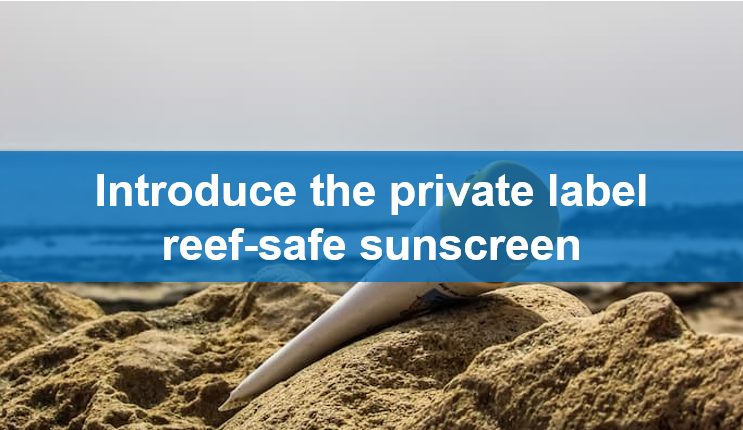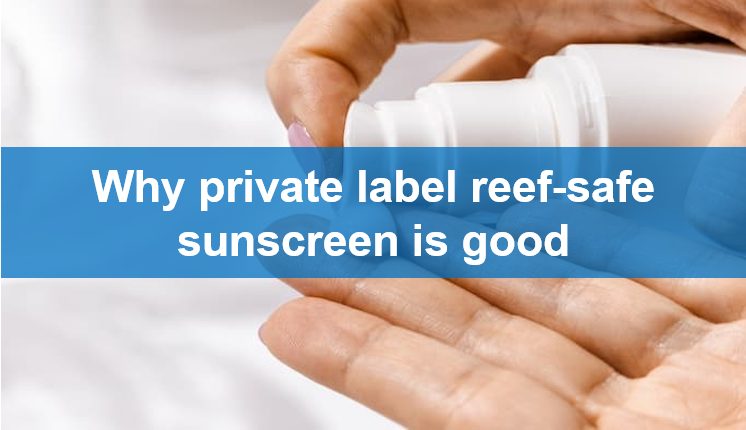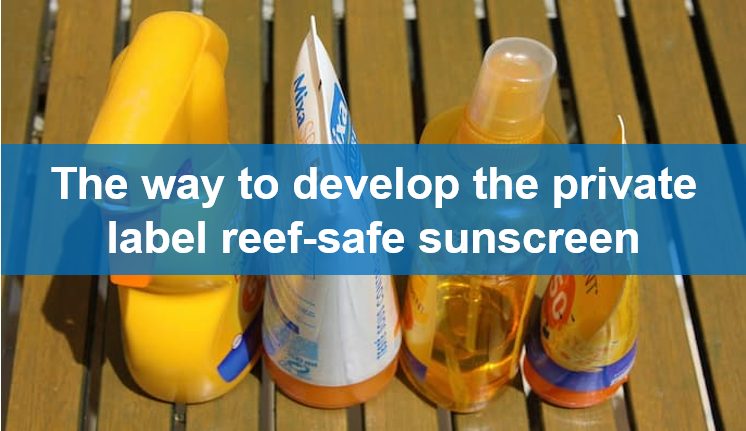
- HOME
- Cosmetic OEM Lab
I want to private label reef-safe sunscreen
How to get private label reef-safe sunscreen in Japan
Sunscreen is an essential item for protecting the skin from ultraviolet rays. However, conventional sunscreen products might have an environmental impact. Therefore, developing an eco-friendly sunscreen has become a popular topic in recent years.
In this article, I will explain the definition of reef-safe sunscreen and its reasons why you should produce them. At the end, you can find tips for creating them. So, let’s get started.
Contents

Reef-Safe sunscreen refers to sunscreens that are formulated without certain chemicals that are known to harm coral reefs and marine life. Let me share the information even more.
These sunscreens are typically free from oxybenzone and octinoxate, which are commonly found in traditional chemical sunscreens and have been shown to contribute to coral bleaching and reef degradation. Reef-safe sunscreens use alternative ingredients that are considered safe for coral reefs and marine ecosystems, helping to protect these fragile environments while providing sun protection for humans.
These harmful chemicals typically include oxybenzone, octinoxate, and other ingredients such as octocrylene and homosalate. Reef-safe sunscreens use alternative ingredients that are not known to cause harm to coral reefs, such as zinc oxide and titanium dioxide, which are mineral-based UV filters. Additionally, reef-safe sunscreens are usually biodegradable and free from other potentially harmful additives. By avoiding these harmful chemicals and using alternative ingredients, reef-safe sunscreens help protect coral reefs and marine life while still providing effective sun protection for humans.
Here is the reason why you should make your private label private label reef safe sunscreen:
| Environmental protection |
|
| Customer trust |
|
| Brand differentiation |
|
| Compliance with regulations |
|
| Positive impact |
|
Making the right sunscreen for customers is crucial for outdoor activities. Here are several recommendations for selecting sunscreen:

Private label reef-safe sunscreen has tremendous potential for brands. Not only does it enhance brand image, but it also meets the growing demands of consumers and creates more market opportunities.
With the increasing attention from consumers towards environmental protection and sustainability, offering reef-safe sunscreen can help establish a brand’s environmental image. Transmitting this environmental consciousness can attract more environmentalists and advocates.
With the widespread dissemination of environmental awareness, reef-safe sunscreen holds potential in the market. As an early adopter, your brand has the opportunity to become a leader and gain more market share.
As the production of reef-safe sunscreen adheres to environmental standards, consumers are more likely to trust and choose such products. This helps to enhance customer satisfaction and encourages them to support your brand in the long term.

Developing private label reef-safe sunscreen involves formulating a safe product, sourcing quality ingredients, testing for certification, designing attractive packaging, and effectively marketing it for distribution.
In this section, I will explain some tips for making reef-safe sunscreen.
These are the points to consider in developing private label reef-safe sunscreen through OEM:
It is important to understand that the main steps in developing and manufacturing private label reef-safe sunscreen include researching formulations, sourcing materials, designing packaging, manufacturing, quality control, etc. There are a lot of steps that you need to undergo, so it is better to start at least 6 months before you wish to sell your items in the market so that you’ll have sufficient time to complete everything thoroughly.

In today’s society, more and more people are enjoying outdoor activities such as surfing or diving. Sunscreen plays a crucial role in protecting human skin, yet traditional sunscreens pose serious harm to the environment. Therefore, the production of private label reef-safe sunscreen is increasingly important in a society that emphasizes environmental conservation. Brands aim to earn consumers’ trust by offering eco-friendly products. Consequently, finding a suitable OEM partner to collaborate on developing private label reef-safe sunscreen has become a crucial consideration for many brands. If you are considering manufacturing, please do not hesitate to contact our OEM department for inquiries.
For further information, please contact us.